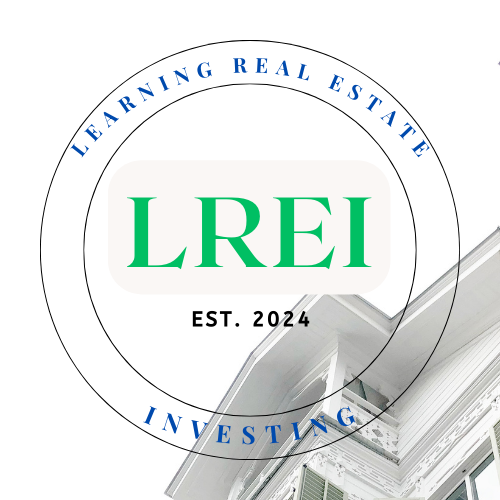Many people dream of financial freedom—having enough money to live without working. One popular way to reach this goal is through real estate investing. But is it really possible to become financially free by owning properties?
In this article, we’ll break it down in simple terms. You’ll learn:
✅ What financial independence means
✅ How real estate can help you get there
✅ The best real estate strategies for passive income
✅ Common mistakes to avoid
✅ Real-life examples of people who did it
Let’s find out if real estate can make you financially free!
1. What Is Financial Independence?
Financial independence (FI) means:
✔ You don’t have to work for money
✔ Your investments pay your bills
✔ You can live life on your terms
For example, if your monthly expenses are 3,000, 3,000 month without you working.
2. How Real Estate Can Help You Reach Financial Goals
Real estate is one of the best ways to make passive income. Here’s how:
A. Rental Income (Money Every Month)
- You buy a property and rent it out.
- The tenant pays rent, which covers the mortgage and leaves extra profit.
- Example: A 200,000houserentsfor1,500/month. After expenses, you keep $500/month.
B. Appreciation (Your Property Grows in Value)
- Over time, real estate usually goes up in value.
- Example: You buy a house for 200,000.In 10 years , It could be worth 300,000.
C. Tax Benefits (Keep More Money)
- The government gives tax breaks to landlords.
- You can deduct mortgage interest, repairs, and property taxes.
3. The Best Real Estate Strategies for Financial Freedom
A. Buy and Hold (Long-Term Rentals)
- Buy a property and rent it for 5+ years.
- Over time, rent increases, but your mortgage stays the same.
- Example: A duplex bought for 250,000 could bring in 2,000 month after 5 years.
B. House Hacking (Live for Free)
- Buy a multi-family home (like a duplex).
- Live in one unit, rent the others.
- The rent covers your mortgage, so you live for free!
C. REITs (Real Estate Without Owning Property)
- A REIT (Real Estate Investment Trust) lets you invest in real estate like stocks.
- You earn dividends (cash payments) without managing properties.
4. How Much Money Do You Need to Start?
You don’t need millions to begin. Here are some options:
| Strategy | Minimum Cost |
|---|---|
| House hacking | 3.5% down (8,750 on 250k home) |
| REITs | $100+ (buy shares like stocks) |
| Rental properties | 20% down (40k on a 200k home) |
Tip: Start small and grow over time.
5. Real-Life Examples of People Who Did It
Example 1: The Teacher Who Retired at 40
- Bought 5 rental houses over 10 years.
- Each house made $500/month profit.
- Total passive income: $2,500/month → Enough to quit her job!
Example 2: The Couple Who Travels Full-Time
- House hacked a 4-unit building.
- Rent from 3 units covers all expenses + extra income.
- Now they travel while the rent checks come in.
6. Common Mistakes to Avoid
❌ Not checking the numbers (Buying a bad deal)
❌ Skipping tenant screening (Bad renters = headaches)
❌ Using all your cash (Leave money for repairs)
❌ Giving up too soon (Real estate takes time)
7. Is Real Estate the Best Way to Financial Freedom?
Pros:
✔ Steady passive income
✔ Property values rise over time
✔ Tax benefits save money
Cons:
✖ Takes time to grow
✖ Requires some upfront money
✖ Can be stressful if not managed well
Verdict: Yes, real estate can make you financially free—if you do it right!
8. How to Get Started
- Learn the basics (Read books, watch videos).
- Start small (House hack or buy one rental).
- Reinvest profits (Buy more properties).
- Automate (Hire a property manager when needed).
Final Answer: Yes, It’s Possible!
Real estate is a proven path to financial freedom. Many people have done it—and you can too!
What’s your first step?
✅ Save for a down payment?
✅ Research rental markets?
✅ Talk to a real estate agent?
Let me know in the comments—I’d love to help! 🚀



Leave a Reply